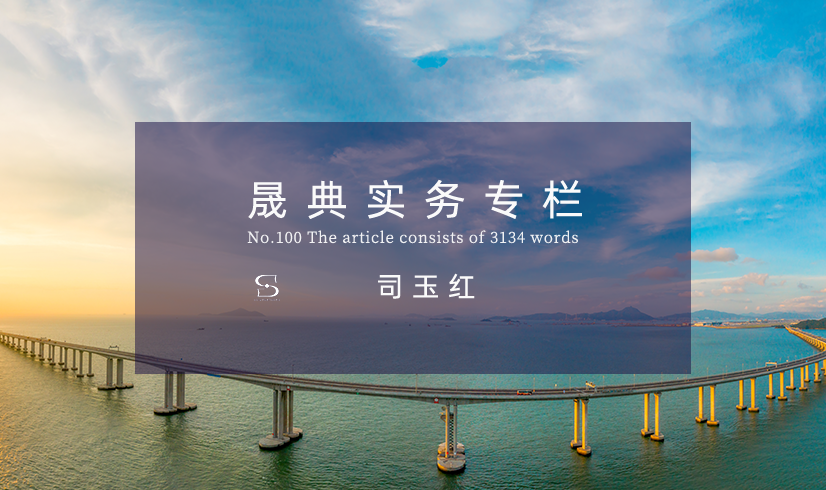
Sheng Code Practice, Si Yuhong: Workers in the performance of their duties caused by the employer's property losses should bear civil liability analysis-to a similar practical case as a reference to the discussion.
The first paragraph of Article 191 of the the People's Republic of China Civil Code stipulates: "If a staff member of an employing unit causes damage to others as a result of the performance of work tasks, the employing unit shall bear tort liability. After the employing unit has assumed tort liability, it may recover compensation from the staff member who has intentional or gross negligence." This is because the interests of employees in performing their duties belong to the employer, and it is also a special arrangement made by the state out of the weak position of workers, but there are also exceptions to the above provisions, that is, if there is a serious fault in the process of performing their duties, resulting in property losses of the employer, after the employer bears tort liability, it can recover compensation from the staff who have intentional or gross negligence. In addition to the above provisions, as China's labor law, labor contract law and other special laws that deal with the field of labor arbitration have no provisions on this. And in the stage of labor arbitration due to the different application of the law, resulting in judicial practice in the final judgment of workers in the performance of their duties in the process of fault caused by the loss of the employer and the final compensation for the loss of the employer's property is very few. In this paper, the author intends to analyze and discuss a case in which the employer's property loss caused by the laborer in the process of performing his duties, and the employer claims compensation from the laborer and finally obtains the support of the court.
2024-12-17
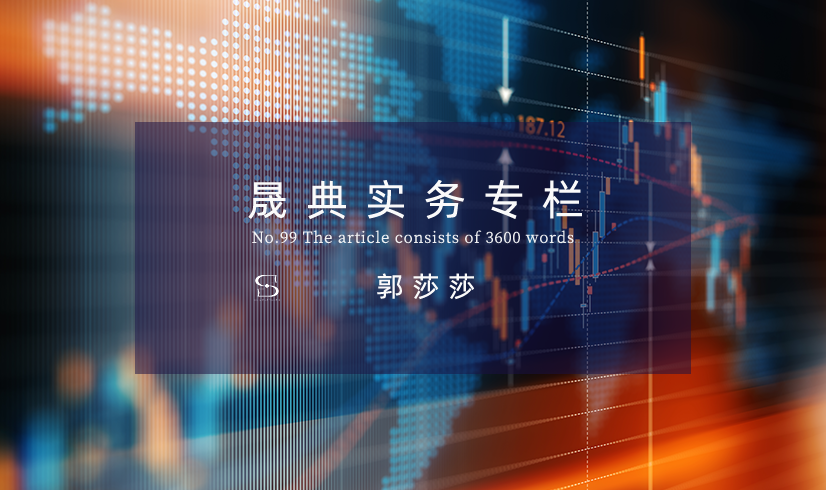
Shengdian Practice. Guo Sasha: An analysis of whether the settlement of government investment projects should be strictly subject to the conclusion of administrative audit.
Recently, the "Interpretation (II) of the Supreme People's Court on the Application of Legal Issues in the Trial of Construction Contract Disputes" is about to come out. In the "open" association discussion version of the circle of friends, the audit opinions of government audit units or the review conclusions of financial review agencies (Hereinafter referred to as administrative audit conclusions) can be revised as the basis for settlement, and also set off a dispute about whether the settlement of government investment projects should be strictly subject to administrative audit conclusions, the author analyzes the recent cases as follows.
2024-07-12
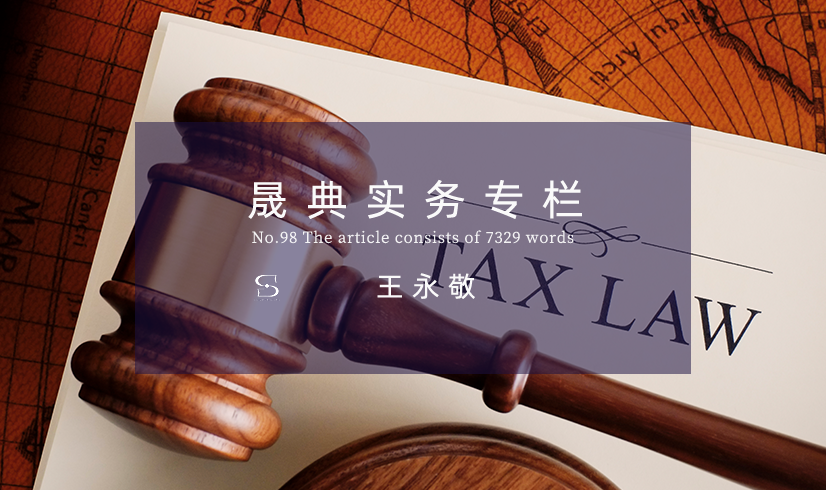
Shengdian Practice | Wang Yongjing: Limits and Premises of Enterprise Income Tax Collection and Management for Cross-border Reorganization-Also Talking about Chaoyang Tax 0.23 billion Yuan Inspection and Tax Replenishment Case
If a non-resident enterprise directly transfers the equity of a resident enterprise and conforms to the principle of taxation at the source of income, the tax authority of the location (source) of the resident enterprise has the right to directly levy taxes. Article 7 of Caishui (2009) No. 59 provides for the opportunity to apply for special tax treatment for cross-border equity or asset acquisitions. Not all offshore restructuring activities involve the administration of Chinese corporate income tax laws and regulations. Whether the indirect transfer of the equity of a resident enterprise by a non-resident enterprise involves the application of Caishui (2009) No. 59 for special tax treatment or general tax treatment is based on the following preconditions: first, it is verified and determined that the indirect transfer of the equity of a resident enterprise does not have reasonable commercial purposes and is determined to be a direct transfer of the equity of a resident enterprise to exercise the right of taxation. Non-resident enterprises indirectly transfer the equity of resident enterprises to meet reasonable commercial purposes without triggering the tax obligation of Chinese enterprises, and there is no need to further discuss whether special tax treatment is applicable. If it does not meet reasonable commercial purposes and is characterized as a direct transfer of the equity of a resident enterprise, it can apply for special tax treatment in accordance with the relevant provisions of Caishui (2009) No. 59.
2024-07-10
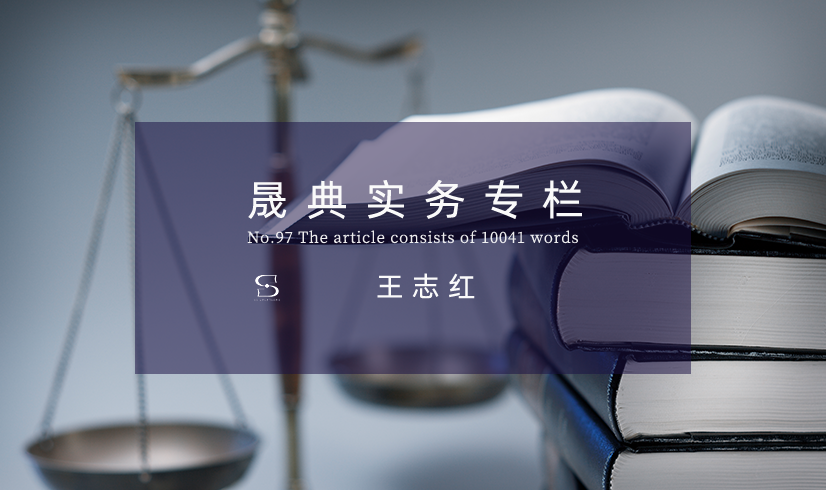
Shengdian Practice | Wang Zhihong: Return to the Legal Effect of Bidding, Bidding and Winning Documents to Recognise the Winning Notice-Another Interpretation of Article 4, Paragraph 1 of the General Principles of Contract Compilation
In China, there are views on the legal effect of the winning bid notice reaching the winning bidder, such as the contract is not established, the appointment contract, the establishment and entry into force of the contract, and the judicial decision is not unified. In this regard, the Supreme People's Court promulgated the first paragraph of Article 4 of the Interpretation of the General Principles of the Contract, which stipulates that "if a contract is concluded by means of bidding and the parties request confirmation that the contract is established from the time the notice of winning the bid reaches the winning bidder, the people's court shall support it. If the parties refuse to sign a written contract after the contract is established, the people's court shall determine the contents of the contract on the basis of the basis of the basis of the basis of the basis of the basis of the basis of the basis of the basis of the basis." This clause seems to establish that the legal effect of the notice of winning bid reaching the successful bidder is that this agreement is established and effective. However, if understood on the basis of the establishment and entry into force of this treaty, the provision clearly has the logical error of determining the nature first and then determining the content, and may cause some problems in the judicial application process. From the perspective of judging that the legal effect of the bid-winning notice should return to the contents of the bidding, bidding and bid-winning documents, this paper holds that the legal effect of the bid-winning notice should be determined according to the contents of the bidding, bidding and bid-winning documents, and then makes a new interpretation of the first paragraph of Article 4 of the Interpretation of the General Principles of Contract, before determining that the bidding is for the purpose of concluding a contract, according to the meaning of the contents of the bidding, bidding and winning documents and the degree of completeness, consistency and performance of the contract elements, the legal effect of the winning bid notice reaching the winning bidder may be either the establishment of an appointment contract or the establishment of a contract.
2024-05-24
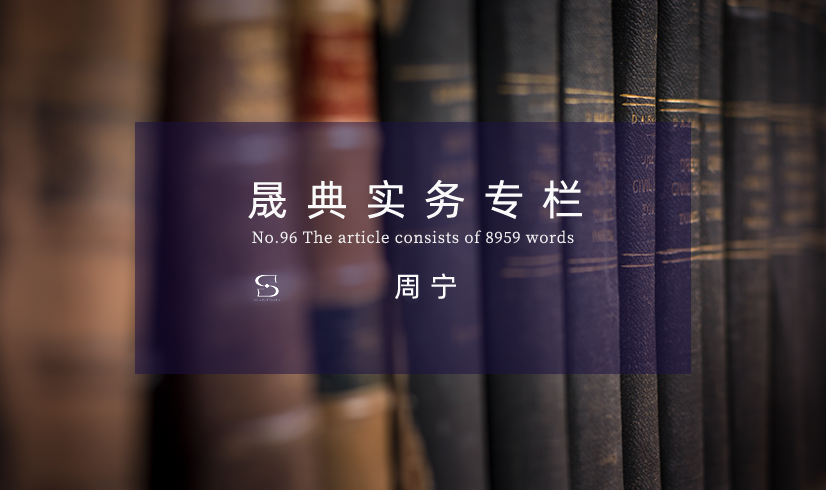
Sheng Dian Practice. Zhou Ning: Study on the effectiveness of offline recourse behavior of electronic commercial bills of exchange.
The validity of offline recourse for electronic commercial bills of exchange is a common issue in bill disputes and is often disputed in practice, but most courts still consider offline recourse to be valid. On October 11, 2021, the Beijing Financial Court issued a Civil Judgment with the case number (2021) Jing 74 Min Zhong No. 188, finding that electronic commercial bills of exchange must be pursued online. The judgment was later selected as one of the top ten typical cases of the Beijing Financial Court in 2021, which triggered heated discussions.
2024-05-08
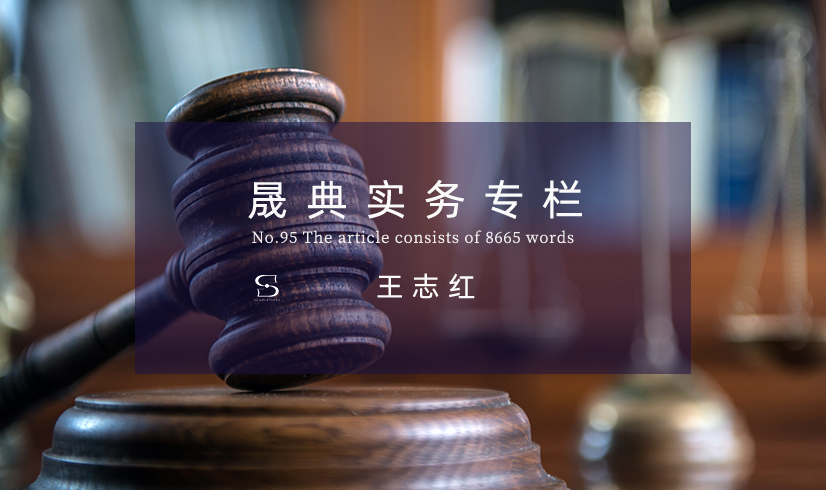
Sheng Code Practice | Wang Zhihong: Analysis of the Obligation of the Legal Representative's Review of the Legal Representative's Overstepping Acts-Based on Article 20, Paragraph 1, of the Partial Interpretation of the General Principles of Contract Compilation
In China's judicial practice, the standard of the legal representative's ultra vires act has gone through the process of determining that the counterpart of the legal representative's ultra vires guarantee does not have the obligation of examination, to determining that the counterpart of the ultra vires guarantee has the obligation of formal examination, to the reasonable obligation of examination stipulated in the Interpretation of the Guarantee System, and to extending the ultra vires guarantee to the ultra vires act in Article 20, paragraph 1 of the Partial Interpretation of the General Principles of the Contract. However, it is urgent to clarify how to define the standard of reasonable examination obligation and what are the provisions of current laws and administrative regulations on the limitation of the representation of legal representatives. Reasonable review obligation is a kind of review obligation between formal review and substantive review. In my opinion, the obligation of reasonable review requires that the counterpart should be careful and prudent in normal transactions, and on the basis of the formal completeness of the review documents, it should also pay attention to the validity and legality of the form of the resolution, but does not include the authenticity of the review resolution itself and the legality of the content of the resolution. Reasonable review obligation can be defined from three dimensions: the object of review, the content of review and the degree of review. A reasonable review also takes into account other factors, including the materiality of the transaction, the identity of the relative, the identity of the legal person, and the number of transactions. With regard to the rules concerning the reasonable examination obligation of the counterpart in the current laws and administrative regulations, the author lists the provisions of articles 16, 59, 67, 116, paragraph 3 and 135 of the company law, and articles 62 and 81 of the securities law.
2024-04-26
